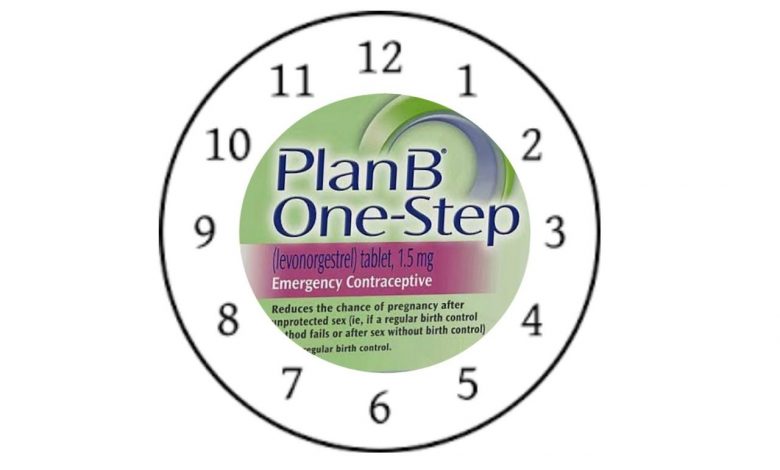How Long Does Plan B Stay In Your System?

What is Plan B?
Plan B is an emergency contraceptive pill and a backup method to birth control. It comes in the form of levonorgestrel pills (2 pills of 0.75 mg in each pill or 1 pill of 1.5mg) that are taken by mouth after unprotected sex. Levonorgestrel is a synthetic hormone used in birth control pills for over 35 years. Plan B can reduce a woman’s risk of pregnancy when taken as directed if she has had unprotected sex. Plan B contains only progestin, levonorgestrel, a synthetic hormone used in birth control pills for over 35 years.
Emergency contraception provides an important safety net when you have sexual intercourse and no contraception is used or the contraception used is compromised (missed birth control pills, missed Depo injection, condom slips/breaks, etc.).
How does Plan B work?
Plan B works like other birth control pills to prevent pregnancy. Plan B acts primarily by stopping the release of an egg from the ovary (ovulation). It may prevent the union of sperm and egg (fertilization). If fertilization does occur, Plan B may prevent a fertilized egg from attaching to the womb (implantation). If a fertilized egg is implanted prior to taking Plan B, Plan B will not work.
When used as directed, Plan B One-Step is generally safe and effective. In 1997, the Food and Drug Administration reviewed the evidence on the safety and concluded that emergency contraception pills are safe and effective. In 2006, the FDA approved the sale of Plan B over the counter.
How do I use Plan B morning-after pills?
Take Plan B One-Step, as soon as you can after unprotected sex. Simply swallow the tablet the way you would any other pill. Read the instructions that come in the package for more information.
You can take Plan B One-Step pills up to five days after unprotected sex, but they work much better if you take them during the first three days. Take a pregnancy test if you haven’t gotten your period within three weeks after taking the morning-after pill.
Don’t take Plan B One-Step morning-after pills if you’ve taken ella in the last five days.
How long does Plan B morning-after pills stay in your system?
There are several factors that come into play when estimating how long Plan B One-Step morning-after pills will stay in your system because every woman has physiology unique to them. Here are some major factors you should consider when trying to understand how long Plan B One-Step morning-after pills will stay in your body:
• Age: Typically, the younger you are, the more efficient your body functions are. The more efficient your body functions, the faster Plan B One-Step morning-after pills will be removed from your system.
• Amount: Plan B has a one-dose regimen, but some women abuse it by taking more than 1.5 milligrams of the drug. The higher the dose of Plan B One-Step morning-after pills you take, the longer the pills will take to be removed from your system.
• Genetics: Genes predispose people to different metabolic functions, which is a key factor in how your body processes medications like Plan B One-Step morning-after pills. For this reason, your genetic makeup comes into play when estimating how long Plan B One-Step morning-after pills will remain in your system.
• Kidney and liver functions: The liver and kidneys eliminate everything you ingest, and Plan B One-Step morning-after pills are no exception. Levonorgestrel the active ingredient in Plan B is metabolized in the liver, via reduction, hydroxylation, and conjugation (specifically glucuronidation and sulfation). If your liver or kidneys are damaged, it will most likely take longer for your body to remove the Plan B One-Step morning-after pills from your system.
• Metabolism: Your metabolism determines how quickly you process foods, liquids, and drugs such as Plan B One-Step morning-after pills. If your metabolism is slow, it will take longer for your body to process and eliminate Plan B One-Step morning-after pills from its system than someone with a fast metabolism.
• Usage frequency: The longer you have been taking Plan B One-Step morning-after pills, the longer it will remain in your system. For example, it will take longer for someone who has taken Plan B One-Step morning-after pills for several years to remove Plan B One-Step morning-after pills from the body than someone who has only been taking Plan B One-Step morning-after pills for a few months.
After reaching maximum serum levels, the concentration of Plan B decreases with a mean elimination half-life of about 26 hours. The elimination half-life of Plan B is between 24 to 32 hours, although values as short as 8 hours and as high as 45 hours have been reported. About 20 to 67% of a single oral dose of Plan B is eliminated in urine and 21 to 34% in feces.
About 94 to 97% of a drug will have been eliminated after 4 to 5 half-lives. Thus, it follows that after 4 to 5 half-lives, the plasma concentrations of a given drug will be below a clinically relevant concentration and thus will be considered eliminated. This means that Plan B One-Step morning-after pills will clear out of a person’s system within 7 days (approximately 160 hours) after the last dose but the elimination may vary based on multiple factors already stated above.
How effective are Plan B One-Step morning-after pills?
A levonorgestrel morning-after pill like Plan B can lower your chance of getting pregnant by 75-89% if you take it within 72 hours (three days) after unprotected sex or contraception failure. You can take Plan B morning-after pills up to five days after unprotected sex. But sooner is better the longer you wait to take it, the less effective it is.
Plan B One-Step morning-after pills may not work if you weigh 70kg (155 pounds) or more. Plan B may also be less effective in people near ovulation.
What are the side effects of taking Plan B?
Some women may experience side effects, which may include:
- a period that is lighter, heavier, early, or late
- nausea
- lower abdominal cramps
- tiredness
- headache
- dizziness
- breast tenderness
- vomiting
Some women taking Plan B One-Step may have changes in their period, such as spotting or bleeding, before their next period. If your period is more than a week late, you should get a pregnancy test and follow up with your healthcare professional.
If you vomit within 2 hours of taking the medication, call a healthcare professional to find out if you should repeat the dose. If you experience severe abdominal pain, you may have an ectopic (outside the uterus) pregnancy and should get immediate medical attention.





